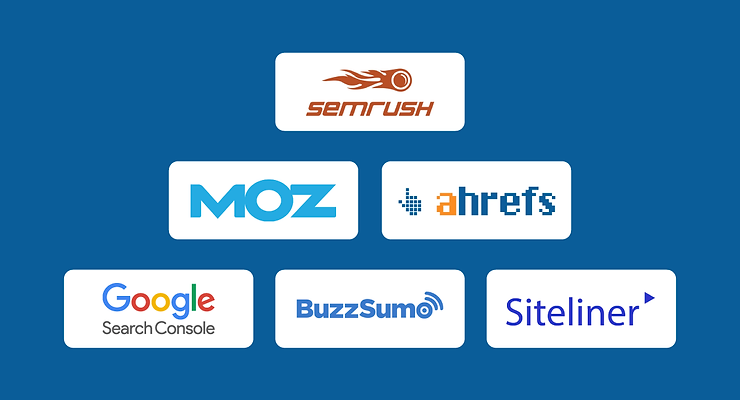What is SEO analytics and how can it help?
Analytics in SEO refers to the process of tracking, measuring, and analysing data related to a website’s performance in the search results.
This data can include information about website traffic, user behaviour, keyword rankings, backlinks, and other key metrics. By analysing this data, SEO professionals can gain insights into the effectiveness of their SEO strategy and make informed decisions to improve website visibility and user experience.

Analytics can help in several ways, including:
- Tracking website performance: By tracking website traffic, engagement, and other metrics, SEO professionals can measure the effectiveness of their optimisation efforts and identify areas for improvement.
- Monitoring keyword rankings: By tracking keyword rankings, SEO professionals can determine which keywords are driving the most traffic to their website and make adjustments to their strategy as needed.
- Identifying backlink opportunities: By analysing a website’s backlink profile, SEO professionals can identify high-quality backlinks and opportunities for link building.
- Measuring the impact of content: By analysing the performance of content on a website, SEO professionals can identify which types of content are driving the most traffic and engagement, and make adjustments to their content strategy as needed.
Overall, analytics in SEO provides valuable insights into the performance of a website and the effectiveness of SEO efforts, allowing professionals to make data-driven decisions and continuously improve their strategy.
What analytics should I be following?
For SEO, there are several analytics that you should be tracking to monitor the performance of your website and SEO efforts.
Some important metrics include:
- Website traffic
- Bounce rate
- Time on site
- Click-through rate
- Conversion rate
- Keyword rankings
- Backlink profile
Additionally, it’s important to monitor mobile traffic and engagement, as well as local search performance if your business has a physical location.
By tracking these metrics and analysing the data over time, you can gain insights into the effectiveness of your SEO strategy and make informed decisions to improve your website’s visibility and user experience. It’s also important to use tools like Google Analytics and Google Search Console to monitor these metrics and identify areas for improvement.

What tools can I use to track data?
To track analytics from an SEO perspective, there are several tools and techniques you can use:
Google Analytics: This is a free tool from Google that provides in-depth insights into website traffic, user behaviour, and other key metrics. It allows you to track traffic from different sources, including organic search, and analyse user behaviour on your website.
Google Search Console: This is another free tool from Google that allows you to monitor your website’s presence in the search results. It provides data on keyword rankings, click-through rates, and other search performance metrics, as well as alerts for any technical issues that may be affecting your website’s visibility in the search results.
Keyword research tools: Tools like Ahrefs, SEMrush, and Moz can help you identify relevant keywords to target, track your rankings for those keywords, and analyse the competition for each keyword.
Backlink analysis tools: Tools like Ahrefs, Majestic, and Moz can help you analyse your backlink profile, identify high-quality backlinks, and monitor any changes to your backlink profile.
Performance tracking tools: Tools like GTmetrix, Pingdom, and Google PageSpeed Insights can help you monitor your website’s performance, identify areas for improvement, and optimise your website for speed and user experience.
By using these tools and techniques, you can track and analyse key SEO metrics, identify areas for improvement, and make data-driven decisions to improve your website’s visibility, user experience, and overall performance.

Source : SoftwareSuggest
Is Google Analytics & Search Console important?
Google Analytics and Google Search Console are important tools for any website owner or SEO professional for several reasons:
Website traffic analysis: Google Analytics provides valuable insights into website traffic, allowing you to track the number of visitors to your site, where they are coming from, and how they are engaging with your content. This information can help you identify which pages are popular and which need improvement.
User behaviour analysis: Google Analytics allows you to track user behaviour on your site, such as how long they stay on your site, which pages they visit, and which actions they take. This information can help you identify user preferences and optimise your website to improve the user experience.
Keyword tracking: Google Search Console provides data on the keywords that are driving traffic to your site, as well as the average position and click-through rate for those keywords. This information can help you identify which keywords to target and track your progress over time.
Technical issue identification: Google Search Console alerts you to technical issues that may be affecting your website’s visibility in the search results, such as crawl errors, security issues, and mobile usability issues.
Performance tracking: Both tools allow you to track the performance of your website over time and identify trends, allowing you to make data-driven decisions to improve your SEO strategy.

Source : Search Engine Tool
What should I be looking out for?
There are many SEO metrics that can be tracked, but some of the most important ones to track include:
- Organic traffic: Organic traffic refers to the number of visitors that come to your website from search engine results pages (SERPs). This metric is important because it shows how many people are finding your website through search engines, which is a key indicator of your website’s visibility.
- Keyword rankings: Keyword rankings refer to the position your website appears in the SERPs for specific search terms. Tracking your rankings for important keywords is essential because it allows you to identify which keywords are driving traffic to your site and where there may be opportunities to improve your ranking.
- Backlinks: Backlinks are links from other websites to your website. The number and quality of backlinks to your website are important because they signal to search engines that your website is a valuable and trustworthy source of information.
- Bounce rate: Bounce rate refers to the percentage of visitors that leave your website after viewing only one page. A high bounce rate can indicate that your website is not providing visitors with the information or user experience they were looking for.
- Page load speed: Page load speed refers to how quickly your website pages load. A slow load speed can negatively impact user experience and search engine rankings.
- Click-through rate (CTR): CTR refers to the percentage of people who click on your website’s link in the search results. A high CTR indicates that your website’s meta title and description are relevant and compelling to users.











We have been working with Amax Marketing for the last few weeks and have already been impressed with the results we've seen.
As experts in outreach and digital PR, we knew we'd be in safe hands. We are looking forward to the coming months, and getting some fantastic results!